Historica
“A generation which ignores history has no past and no future.”
Robert Heinlein, American author (1907-1988)

Napoleon Bonaparte (1769-1821), was a French military and political leader who played a huge role in shaping Europe. Rising through the ranks during the French Revolution, he seized power in a 1799 coup, becoming First Consul and later, in 1804, Emperor of the French. A brilliant strategist, he led numerous campaigns, expanding the French Empire. However, the disastrous Russian campaign in 1812 led to his 1814 abdication and exile to Elba. He briefly returned during the Hundred Days in 1815, only to be defeated at Waterloo and exiled to Saint Helena, where he died.
Early life and education
Napoleon Bonaparte's lineage traced back to Italian nobility, with his family settling in Corsica during the 16th century. Born in Ajaccio in 1769, he was one of eight children to survive infancy. Despite his noble origins, his Corsican background and accent subjected him to bullying during his formative years in France. However, he demonstrated exceptional aptitude in mathematics and military studies, culminating in his distinction as the first Corsican graduate of the prestigious École militaire in Paris, where he was commissioned as an artillery officer. His mother's firm discipline played a crucial role in shaping his character, a fact he later acknowledged, stating, "The future destiny of the child is always the work of the mother."

The French Revolution and Early Military Career:
The onset of the French Revolution in 1789 profoundly impacted Napoleon's trajectory. As the monarchy dissolved and the Republic was established, he spent a considerable period in Corsica, aligning himself with the Jacobins, a political faction advocating for democratic ideals. However, his political affiliations shifted dramatically following a conflict with Pasquale Paoli, the Corsican governor and a prominent figure in the island's independence movement. This confrontation in 1793 forced the Bonaparte family to flee Corsica and seek refuge on the French mainland. This relocation marked a turning point in Napoleon's life, as he resumed his military service, setting the foundation for his remarkable rise to power.

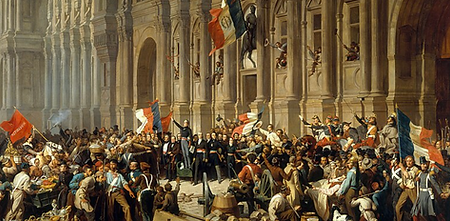
Napoleon's rise to power
From 1792 onward, revolutionary France was embroiled in wars against various European powers. In 1796, Napoleon achieved significant military success by leading the French army to victory over Austria in Italy, culminating in the 1797 Treaty of Campo Formio, which expanded French territories.
In 1798, the Directory, France's governing body, proposed an invasion of England. However, Napoleon, recognizing the weakness of the French navy compared to the British Royal Navy, suggested an invasion of Egypt instead, aiming to disrupt British trade with India. While he secured a victory against the Mamluks at the Battle of the Pyramids in July 1798, the French fleet suffered a devastating defeat at the Battle of the Nile in August, effectively isolating his forces. An invasion of Syria in early 1799 ended with a failed siege of Acre. Sensing political instability in France, Napoleon abandoned his army in Egypt and returned home.
Napoleon's Enduring Legacy
Returning to a politically unstable France, Napoleon orchestrated the coup of 18 Brumaire (November 9, 1799), overthrowing the Directory and establishing the Consulate, with himself as First Consul. This marked the end of the revolutionary phase and the beginning of his authoritarian rule. During the Consulate, he implemented significant reforms, including the Napoleonic Code (which codified French law), established the Bank of France, and centralized the administration, laying foundations that endure to this day.

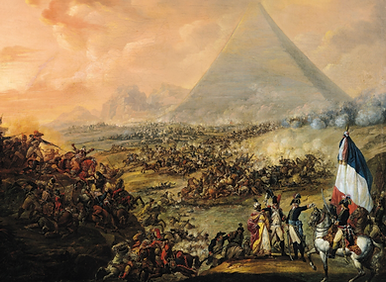
The Height of Napoleon's Power
In 1804, Napoleon crowned himself Emperor of the French, transforming the republic into an empire. His reign was characterized by a series of military campaigns known as the Napoleonic Wars. He achieved legendary victories at Austerlitz (1805) against the Third Coalition, Jena-Auerstedt (1806) against Prussia, and Wagram (1809) against Austria, expanding French influence across much of continental Europe. He imposed the Continental System, an embargo against British trade, aiming to cripple his arch-rival.
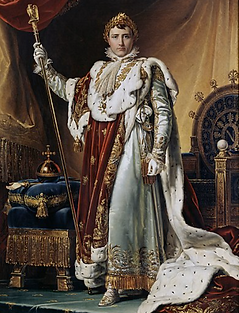
Napoleon's Decline and Defeat
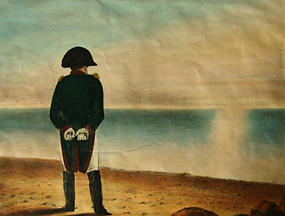
However, Napoleon's ambition eventually outstripped his resources. The protracted Peninsular War (1808-1814) in Spain and Portugal drained French manpower and resources. The disastrous invasion of Russia in 1812, where his Grande Armée was decimated by the harsh winter and Russian resistance, proved to be the turning point. Following defeat at the Battle of Leipzig in 1813, he was forced to abdicate in 1814 and exiled to the island of Elba.
Final Exile
His escape from Elba in 1815 initiated the "Hundred Days," a brief return to power. However, his final defeat came at the Battle of Waterloo on June 18, 1815, at the hands of a coalition led by the Duke of Wellington and Gebhard Leberecht von Blücher. Napoleon was exiled once more, this time to the remote island of Saint Helena in the South Atlantic, where he died on May 5, 1821.
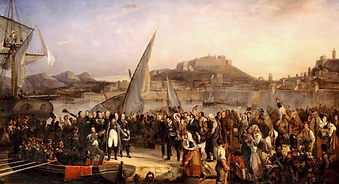

Enduring and Complex Legacy
Napoleon's legacy is complex and far-reaching. He was a military genius whose innovative tactics are still studied today. His legal and administrative reforms, particularly the Napoleonic Code, profoundly influenced legal systems worldwide. While his imperial ambitions brought immense suffering and war, he also inadvertently spread the ideals of the French Revolution, contributing to the rise of nationalism and the eventual decline of absolute monarchies across Europe. He remains one of history's most compelling and controversial figures.
Written by Bexultan Bagdat 16.11.2024